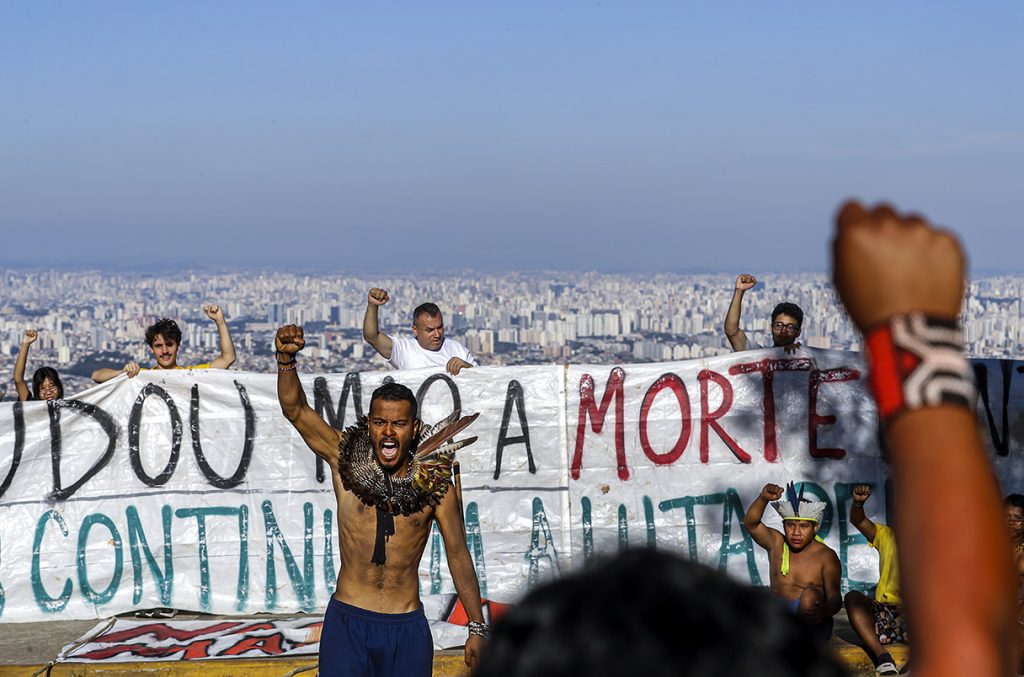
By: Noah Rosenblum, 2L
In a critical juncture for Brazil’s Indigenous communities, a legal theory known as “Marco Temporal” is being examined by the country’s Supreme Court, and its potential approval could reshape Indigenous land rights and exacerbate deforestation. This article explores the implications of marco temporal, its historical context, and the ongoing struggle between Indigenous rights and economic interests in the Brazilian Amazon.
The Marco Temporal theory, introduced in 2007, asserts that Indigenous communities have no claim to lands they weren’t occupying in 1988 when Brazil’s constitution was enacted. Some Brazilian lawyers find this theory to be unconstitutional, and if accepted, all 1393 designated indigenous lands may be under threat of reclassification.
The roots of Marco Temporal lie in agribusiness and have garnered support from developers, loggers, miners, and farmers with vested interests in the Amazon. Economic development, particularly for industries like soybean production, cattle farming, and mining, has been cited as a primary motivation for codifying this theory, and industry lobbyists have been vocal in their support. In the backdrop of the judicial proceedings, a bill codifying Marco Temporal is pending in the legislature.
Indigenous communities argue that their claims to these lands are based on historical occupancy, constitutional backing, and the need to protect the Amazon’s biodiversity. Indigenous peoples are known to safeguard nearly 80 percent of the world’s remaining biodiversity, with the Brazilian rainforest alone housing nearly a quarter of terrestrial biodiversity and 10 percent of all known species on Earth.
The consequences of this dispute are already evident, with Indigenous groups staging protests and roadblocks across Brazil in response. Over the past four years, deforestation in the Amazon has surged by 56 percent, resulting in an estimated 13,000 square miles of land lost to development. During this period, Indigenous communities have lost around 965 square miles of their traditional territories due to former President Jair Bolsonaro’s policies.
As Brazil awaits the Supreme Court’s decision and Congress’s actions, there is growing concern that President Luiz Inácio Lula da Silva may either veto the bill or approve legislation aligned with Marco Temporal to appease the highly influential agro-industry.
The Marco Temporal legal theory has the potential to significantly alter the landscape of Indigenous land rights in Brazil, impacting both Indigenous communities and the environment. It represents a complex interplay between economic interests, human rights, and the preservation of biodiversity, highlighting the ongoing challenges faced by Indigenous peoples in asserting their rights in the face of industrial development and deforestation in the Amazon.




